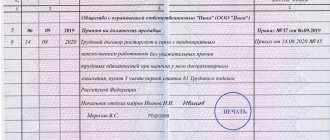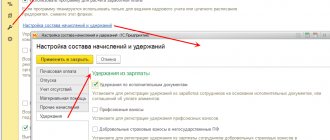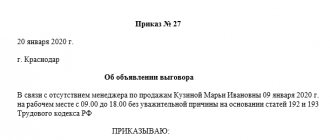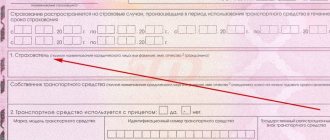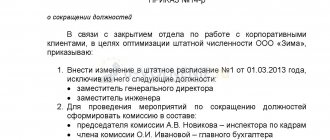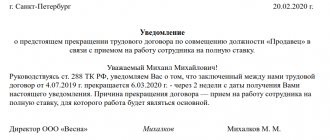Through seeking to prosperity
Labor discipline is the key to a successful business.
This applies not only to achieving personal results, but also affects the prosperity of the company as a whole. Sloppy employees who are late for negotiations, look sloppy, let down counterparties and take it out on clients will not allow the implementation of even the most ideally verified plan by management. And good salaries, comfortable jobs and regular bonuses do not always motivate staff. More precisely, the carrot method is good, but not for the absolute majority.
There are few people who work properly on their own, fulfilling plans and without causing any complaints. They are non-confrontational and neat. At the same time, not because of possible “goodies” from the company, but just the way they are designed. Perfectionists or neat freaks by nature.
Even larger is the group of those who are subject solely to the whip in the form of disciplinary sanctions. Only the threat of punishment motivates them, if not to professional achievements, then at least tolerable compliance with job descriptions and local regulations of the enterprise.
Some do not value their place so much that they violate the “rules of conduct” and fail to fulfill their duties over and over again, accumulating penalties. The bosses of such employees ask themselves: after how many reprimands can an employee be fired?
Unlawful disciplinary action
Labor relations between employee and employer are regulated by the Labor Code of the Russian Federation (hereinafter referred to as the RF). Thus, part 2 of Article 21 of the Labor Code of the Russian Federation establishes that an employee is obliged, in particular, to conscientiously fulfill his labor duties assigned to him by an employment contract, comply with internal labor regulations, observe labor discipline, and comply with established labor standards. In accordance with Part 2 of Article 22 of the Labor Code of the Russian Federation, the employer has the right to demand this from the employee, and in case of violations, to bring employees to disciplinary and financial liability.
But are disciplinary sanctions always justified and legal, and how can an employee protect his violated rights? These issues were the focus of attention of legal specialists when considering case No. 2-2686/2019 in the Miass City Court, the decision on which was made on November 26, 2021.
From the case materials it follows that in June and September 2021, the relevant department brought the head of one of the Miass sports schools to disciplinary liability in the form of a reprimand, reprimand and deprivation of part of the quarterly bonus in connection with improper performance of official duties assigned to him by the employment contract, and violation of performance disciplines.
Considering that the rights of the director of the sports school were grossly violated, legal experts filed a claim in court. According to the applicant, there were no grounds to hold the director accountable, since he did not commit any violations at the time of issuing the controversial orders. In addition, the director was not familiar with one of the orders and learned about it by chance three months after the document was issued. Moreover, from the contents of the order it was impossible to conclude for what specific violation he was held accountable.
In the statement of claim, the lawyers asked to cancel the disciplinary orders, to recover from the management the withheld 10% of the quarterly bonus, compensation for delayed wages and compensation for moral damage.
Let us note that in accordance with Article 192 of the Labor Code of the Russian Federation, for committing a disciplinary offense, that is, failure or improper performance by an employee through his fault of the labor duties assigned to him, the employer has the right to apply the following disciplinary sanctions: reprimand, reprimand, dismissal on appropriate grounds. In this case, the right to choose a specific disciplinary measure from among those provided for by law belongs to the employer, who must take into account the severity of the offense, the circumstances of its commission, and the employee’s previous behavior.
The procedure for bringing an employee to disciplinary liability is established by Article 193 of the Labor Code of the Russian Federation, as well as by Resolution of the Plenum of the Supreme Court of the Russian Federation No. 2 dated March 17, 2004 “On the application by the courts of the Russian Federation of the Labor Code of the Russian Federation,” according to which the employer has the responsibility to prove the existence of grounds to bring the employee to disciplinary liability, and also that when imposing a penalty, the severity of this offense and the circumstances under which it was committed, the employee’s previous behavior and his attitude to work were taken into account.
Legal lawyers managed to convince the court that these legal requirements were violated when bringing the director of a sports school to disciplinary liability, in particular, the provisions of Articles 192 and 193 of the Labor Code of the Russian Federation were violated, according to which a disciplinary offense for which an employee is subject to disciplinary liability must be clearly formulated by the employer, and the order must indicate the circumstances of the offense and the details of the documents recording it. The defendant failed to fulfill this duty when issuing the orders. Having designated the misconduct of the director of the sports school as a failure to fulfill official duties, expressed in a violation of executive discipline, the defendant allowed an ambiguous interpretation of the misconduct, did not clearly and clearly indicate what kind of violation, which was the basis for issuing a reprimand and reprimand, was committed by the plaintiff. The court found that from the appealed orders it was impossible to establish the facts that were subject to verification for their validity, and the employee’s guilt in committing them. Moreover, the wording specified in the order cannot be the basis for bringing the employee to disciplinary liability, since the employee should be held responsible only for a specific disciplinary offense if his behavior is guilty.
Please note that there is a certain procedure for bringing an employee to disciplinary liability. In particular, part 3 of Article 193 of the Labor Code of the Russian Federation states that disciplinary sanctions are applied no later than one month from the date of discovery of the offense. However, from the documents presented by the defendant, it is impossible to draw an unambiguous conclusion about when the circumstances took place in connection with which the director of the sports school was held accountable, and whether the employer complied with the established deadline for imposing a disciplinary sanction.
In addition, Part 1 of Article 193 of the Labor Code of the Russian Federation obliges the employer, before applying a disciplinary sanction, to request an explanation from the employee in writing. This is necessary to ensure an objective assessment of the factual circumstances that served as the basis for bringing the employee to disciplinary liability, and to prevent the unreasonable application of disciplinary sanctions. In the case under consideration, the employer did not require such explanations from the employee.
We emphasize that violation of the procedure for bringing an employee to disciplinary liability due to the provisions of Articles 192 and 193 of the Labor Code of the Russian Federation is an independent basis for declaring the contested orders illegal.
Thus, the employer violated the procedure for bringing the employee to disciplinary liability, did not establish the specific guilt of the employee and did not prove it in the prescribed manner. In this regard, the court saw no reason to consider the director of the sports school to have committed a disciplinary offense and canceled the orders on penalties, and also recovered from the management part of the quarterly bonus withheld from the director of the sports school, compensation for the delay in payment of wages and compensation for moral damage in the amount of 3,000 rubles.
Assessing the court's decision, we can conclude: if an employee is confident that disciplinary sanctions were imposed on him unlawfully or doubts their legality, do not be embarrassed or afraid to go to court, naturally, with the support of qualified lawyers who will help defend rights and restore justice .
Labor Code of the Russian Federation
Resolution of the Plenum of the Supreme Court of the Russian Federation No. 2 of March 17, 2004 “On the application by the courts of the Russian Federation of the Labor Code of the Russian Federation”
Decision of the Miass City Court dated November 26, 2019 in case No. 2-2686/2019
Is it possible to fire someone for one reprimand?
How many reprimands are enough for dismissal? Before answering this question, let's figure out what penalties generally exist and why they are used.
Violations of official duties, requirements of regulations, instructions and orders are disciplinary offenses. An important point is that a person’s actions should not constitute a crime or administrative offense. After all, criminal liability is provided for crimes, and administrative liability is provided for administrative offenses.
Punishments for disciplinary offenses are provided for in the Labor Code of the Russian Federation. Today there are three types:
- comment;
- rebuke;
- dismissal.
A reprimand is an independent punishment and not a reason for dismissal. Of course, if we are not talking about a relapse.
It is strictly forbidden to invent or approve any other options. Labor relations are not a field of fantasy, unfortunately for many managers. We pay special attention to the fact that it is prohibited to develop a system of fines, calling them disciplinary sanctions.
When is a reprimand issued?
A reprimand, like any other disciplinary sanction, must be issued by the employer within a month after the employee’s misconduct is revealed. The company has no right to punish the employee later. This period may be extended if the employee is absent from work due to being on sick leave or on vacation (including study).
The maximum period within which an employer has the right to issue a reprimand is 6 months. However, if a misconduct is revealed during an audit (for example, an audit), a reprimand can be issued no more than 2 years from the established date of the commission of this misconduct.
The employee is fired. What about organizations?
The article is devoted to the responsibility of employees, but it is worth saying a few words about the responsibility of the second party - the employer, who, in his thirst for fair punishment, may demand that a lawyer or personnel officer go beyond the boundaries of labor legislation. This is less common in budgetary institutions, but the management of private companies considers themselves less bound by legal norms. Wrong position.
So, let’s take a situation where the manager does not listen to the lawyer or personnel officer, but demands to apply a penalty not provided for by the Labor Code of the Russian Federation - a severe reprimand for the secretary who violated the deadline for sending the document. The deadline for sending was set in her job description, and the document was important, so the boss considered it possible to choose a more stringent measure of punishment. His position contradicts the Labor Code of the Russian Federation.
If it is not possible to convince of the illegality of such actions, then it should be borne in mind that the consequences will be negative. Firstly, any prohibited actions will be declared illegal and the order will be canceled, and the director or legal entity will be held accountable and pay a fine.
Let's go back to the example. A reprimand or reprimand could be applied to the secretary. We'll talk about how they differ a little later. Now let’s list other options for illegal disciplinary sanctions:
- change of position to a lower one;
- notorious fines;
- vacation cancellation;
- severe reprimand;
- assigning a negative rating;
- working overtime without pay;
- cancellation of earned time off.
Some even insist on making a corresponding entry in the work book. This is also prohibited unless we are talking about dismissal for appropriate reasons. Let us recall that dismissal is the most severe type of punishment in the field of labor relations, but it cannot be applied simply at will. All grounds are enshrined in the Labor Code of the Russian Federation, and the list is exhaustive.
Employers also make another mistake - they incorrectly answer the question of how many reprimands are needed to fire an employee. Mistakenly believing that a reprimand is so serious, then one time is enough to terminate the employment relationship. This is wrong.
Reprimanding an employee: legal consequences for the employer
A reprimand is a legal fact, and it must be correctly executed. Many people forget that, for example, the Labor Code of the Russian Federation does not provide for any severe reprimands. The employer has no right to officially use this phrase. If he nevertheless gives the employee a severe reprimand, then the labor inspectorate (if the employee complains there) can:
- firstly, impose an impressive fine on the company based on clause 1 of Art. 5.27 Code of Administrative Offenses of the Russian Federation;
- and secondly, to cancel the order imposing a severe reprimand.
In addition, the employer has the right to impose any disciplinary sanction, including a reprimand, only if the employee fails to perform or performs his job duties incorrectly. However, these responsibilities must be recorded somewhere: in a contract, job description, labor regulations. And if the employer for some reason did not familiarize the employee with his duties against signature, then he does not have the right to reprimand for their failure to fulfill them.
Dismissal on the basis of a severe reprimand, other non-existent disciplinary sanctions, as well as when the reprimand is issued outside the regulatory framework, can be successfully appealed by the employee in court with a high probability of success. As a result, the court may oblige the employer to reinstate the person at work. And immediately. If the company does not do this, it will have to pay the employee a salary for the time that he was absent from the workplace, although by virtue of a court decision he should have been present (Article 396 of the Labor Code of the Russian Federation).
Fines are prohibited
Fines are not a term from labor law. Although many employers require personnel officers and lawyers to develop a system of fines at the enterprise. Forbidden. Therefore, if appealed, the measure will be canceled.
A fine can be collected from a responsible person who has violated, say, fire safety regulations, only by a representative of the supervisory authority, but not by the company administration.
Or a certain full-time ecologist is obliged to register with the state objects that have a negative impact on the environment, but he did not do this. He was duly brought to administrative responsibility. At the next inspection, it turned out that the ecologist had not done anything - he was fined again. But for the second time, measures were taken against the company itself - a fine was imposed. An environmentalist can be brought to disciplinary liability by the administration of a legal entity, but only a supervisory authority can fine him.
Recording a violation
The procedure for bringing to disciplinary liability and subsequent dismissal requires mandatory recording of the violation committed by the employee. The employer should not ignore this stage, since a documented violation will prove the validity and legality of the employee’s dismissal if the latter decides to go to court.
For example , if an employee showed up for a shift while intoxicated, this fact can be confirmed by a medical opinion. It should be borne in mind that medical examination is carried out exclusively on a voluntary basis. Evidence may include witness statements or memos.
Get an explanatory note
The management must request an explanatory note from the employee, in which he will state why he took certain actions.
In order to request an explanation, the employer must issue a corresponding notice in 2 copies. One of them is given to the subordinate, and the second copy, on which the worker puts his signature, remains with the employer.
To provide an explanatory note to the employee, according to Art. 193 of the Labor Code of the Russian Federation, only two days are allocated. If he is not at his workplace, the document is sent to him by mail in a letter with a list of the attachments.
If the employee has written an explanatory note, then the management must become familiar with the reasons behind the commission of the offense, and then, taking into account the gravity of the act, make a decision on disciplinary punishment, which, by the way, may be the dismissal of the employee from the organization’s staff.
If it turns out that he has a good reason, then it will be impossible to hold him accountable.
Valid reasons excluding disciplinary sanctions are:
- illness, which is confirmed by a medical certificate;
- military training, the employee may provide notice of this;
- donation;
- other circumstances.
Important! The employer must remember that, according to Art. 261 of the Labor Code of the Russian Federation, it is unacceptable to fire a pregnant woman for discreditable misconduct, for example, for being present at work while intoxicated or for systematic absenteeism that is not excused. However, the administration of the enterprise may nevertheless subject the offending employee to other disciplinary measures. Namely, to issue a reprimand or reprimand.
It should be noted that the presence or absence of an explanatory note from the employee from the enterprise administration is absolutely not an obstacle to his dismissal. At the same time, according to Part 3 of Art. 193 of the Labor Code of the Russian Federation, dismissal must take place no later than 1 month from the moment the subordinate commits a disciplinary offense.
Download a sample explanatory note from an employee about committing a disciplinary offense
Draw up an act
If for some reason an explanation is not received, then in accordance with the above norm, the enterprise administration must necessarily record the incident in the appropriate act. Although this document is drawn up in free form, it must contain the following information:
- place, date and time of execution of the act;
- information about at least three employee witnesses who signed the act;
- information about an offense committed by a subordinate;
- what is the basis for the evidence of misconduct, for example, the smell of alcohol, confusion of speech, lack of coordination of movements, which indicate that the employee is intoxicated.
Download a sample act on an employee about a disciplinary offense
If, for example, a report is drawn up because an employee did not show up for a shift, then the document records the time during which he was absent from the workplace.
The guilty person gets acquainted with the act against signature. If he refuses to sign, a corresponding note is made in the document.
In addition, the basis for checking the fulfillment of the duties assigned to him by an employee is a memorandum.
In it, the employee’s immediate supervisor can inform his superiors that a subordinate is evading the performance of his job function or committing discreditable acts. The form of this document is not approved by law, however, its content must contain the following information
- Business name;
- the official to whom the note is addressed;
- FULL NAME. and the position of the sender;
- a description of the disciplinary offense that, in the opinion of the author of the note, was committed;
- information about the offender;
- reference to a regulatory legal act, the provisions of which were violated by the actions of the employee;
- date of;
- signature.
Download a sample report on violation of labor discipline
Download a sample memo on failure to fulfill official duties
Download a sample memo about unacceptable employee behavior
What is the difference between a reprimand and a reprimand
The legislator intended that a reprimand be more severe than a reprimand. But in reality this is a pure formality. After all, criteria for choosing one or another measure are not established anywhere.
Of course, something minor is usually reprimanded. But in one company it is insignificant to violate the dress code, while in another the same thing is classified by management as a serious deviation from the prescribed requirements.
As a rule, the first time is a reprimand, and then a reprimand. But no one obliges you to choose only one option ten or twenty times.
There is also no difference in consequences as such. After a year, both will be “neutralized.” And if you are punished a year after the first sanction was applied, then they will no longer be considered. There is no system in place, that is, dismissal for repeated repetition will not work.
Sample reprimand for improper performance of official duties
In order not to create a new document every time and not remember how this or that information is presented in it, it is better for the company to use a ready-made template. We present one version of the document on the website. Before reprimanding an employee, management will have to take this example as a basis and, if necessary, changing the wording and surname of the offending employee, print the required order.
What and how to choose
So, by what criteria and who chooses the type of recovery? In practice, everything depends on staffing levels. If there is a personnel officer, then he makes the initial choice, setting out his position in the draft of the relevant order. More often than not, this project is coordinated with a lawyer. But it happens that it is not the personnel officer, but the lawyer who is developing drafts of such orders. If there are none, then the decision is entirely up to the director.
In any case, all circumstances must be taken into account, as well as the explanations of the participants and witnesses of the incident, the characteristics of the person, his attitude to the performance of his duties before this episode, as well as the proportionality of the proposed disciplinary measures.
What can an employee be punished for?
Employee misconduct is divided into two types - failure to comply with the terms of the employment contract and internal regulations at the enterprise.
According to the contract, a person is accepted to perform certain duties efficiently. During employment, the parties agreed on this and signed an agreement. The personnel officer introduced the newcomer to his job description and internal regulations (IRR) at the enterprise, which clearly described the requirements for compliance with safety regulations, the need for timely completion of management tasks, work and rest hours, the inadmissibility of rude expressions, as well as responsibility for violating all of this.
Here we will also add the provision on keeping trade secrets, technical instructions and other internal regulations that the staff must adhere to.
After reading the documents, the employee signed the introductory sheet and is responsible from that day on. Now if he, for example, is late, he will receive a “discipline” and will not be able to say that he did not know the rules.
Exception to the rule
Labor law standards are codified, but are not limited to just one source. Especially when it comes to the legal regulation of the work of individual subjects - police officers, prosecutors or judges. For them the responsibility is different.
For example, for employees of the internal affairs system, Federal Law 342 of November 30, 2011 provides for a wider choice of punishment options, including a severe reprimand.
Let us recall that the previously effective Labor Code contained not three, but four options for disciplinary sanctions (Article 135 of the Labor Code of the Russian Federation) for all categories of workers. The reprimand had two “degrees”: ordinary and strict.
How can an employer cancel a reprimand?
It happens that the employer comes to the conclusion that the employee was punished unlawfully and wants to remove the reprimand from him. How can I do that?
Very simple. All that is required to cancel a reprimand is to issue an appropriate order from the head of the company. It can be drawn up at any time (Article 194 of the Labor Code of the Russian Federation). The order to remove the reprimand must contain a reference to the order to issue the reprimand, indicating its date and number. You can see a sample order to remove a reprimand in the ConsultantPlus system. To do this, sign up for a free trial access to the system.
The employee himself or his immediate superior can also apply to have the reprimand lifted.
A sample of drawing up a petition to lift a disciplinary sanction was prepared by K+ experts. Get a free trial access to the system and proceed to the sample.
An employee is considered to have a disciplinary sanction after it has been issued for exactly 1 year, if during this time he does not commit other offenses, followed by other disciplinary sanctions (Article 194 of the Labor Code of the Russian Federation). In this regard, there is one more option for removing a reprimand from an employee - wait for its automatic cancellation.
How to correctly formulate the basis
How many reprimands does it take to fire an employee? Two or more times is already a system. Accordingly, the second is, as it were, grounds for dismissal. But the “reprimand” will not appear in the work record book or in the order. In this case, we will be talking about repeated failure by an employee to fulfill work duties without good reason, if he has a disciplinary sanction (clause 5 of Article 81 of the Labor Code of the Russian Federation). And therefore it is important that the first punishment is properly and officially formalized.
It turns out that the situation has formally matured when a second reprimand can be issued. But here you need to decide whether to fire the employee or apply disciplinary action.
Dismissal based on a reprimand, all the nuances, implies that the second offense is quite serious, and the first has already been formalized. In this case, the interval between prosecution is no more than one year.
When issuing a punishment, strictly follow all formalities:
- record the violation;
- request an explanatory note;
- issue a dismissal order;
- introduce the employee to him;
- meet deadlines.
At the same time, comply with the deadlines for bringing disciplinary action. And if the employee refuses to give explanations, then draw up a corresponding report. It is important that duties or rules that are violated are promptly brought to the attention of the offender. That is, there must be a signature in the job description, local act, order.
Is it possible to reprimand without reprimand and is it issued for absence from work?
A remark is also a disciplinary sanction, but is considered a milder sanction, since Art. 192 of the Labor Code of the Russian Federation is slightly higher in the list of punishments. A reasonable question arises: should a reprimand be preceded by a reprimand, or can it be avoided?
Labor legislation does not rank punishments according to the degree of guilt and does not establish a strict sequence for their imposition. Therefore, the employer himself has the right to assess how great the employee’s guilt in the violation is and what sanction he deserves.
Thus, a reprimand may be issued for absence from work if there were valid reasons for missing work time, a reprimand may be issued if this was done deliberately without significant grounds, and even dismissal is possible when such a violation is systemic in nature.
Here only one constant principle should be observed: one violation - one type of punishment.
Is it possible to challenge a dismissal?
If the employer violated the dismissal procedure or terminated relations with a category of persons in respect of whom this is prohibited by law, the former employee has the right to challenge illegal actions in court. In particular, he may qualify for reinstatement, compensation for expenses, payment of wages for the time between unlawful dismissal and the date of reinstatement, and compensation for moral damages.
The most common causes of litigation are:
- Lack of written documentation by the employer of penalties for misconduct;
- Factual errors in the materials of the internal investigation (for example, time away from work);
- Exceeding the deadline for imposing penalties.
If an employee wins a lawsuit, but another employee has already been appointed in his place, the latter is fired or transferred to another position.
For your information
In addition to the judicial authorities, labor dispute commissions and the labor inspectorate deal with issues of working relationships. In case of contradictions between the court decision and the result of the consideration of the case in the CCC, primacy is given to the court decision. A citizen is not obliged to sequentially apply to three authorities; he has the right to immediately send an application to a law enforcement agency.
“He flew away, but promised to return”
Situation: Liliana works as a salesperson. On Saturday, according to the schedule, Lilya was supposed to work from 10.00 to 19.00, but she was there at 15.20. Yesterday she stayed late at the club and therefore overslept.
Her husband Dormidont works as a carpenter at the company. He hasn't shown up to work for the past few days because he was offered a lucrative free job. Dormidont did not inform the boss about his absence.
Can spouses become unemployed? The Code says yes.
- The truant's employer needs to draw up a document (act) stating that the employee was absent for the whole working day or at least for more than 4 hours in a row. Confirmation will be provided not only by personnel documents (for example, a report card), but also by other evidence: testimony of colleagues, customer complaints (the store is closed), video recordings, data from the electronic pass system.
- Again, you will have to take a written explanation of the reasons for absenteeism. If the employee refuses to sign the act, it is necessary to attract witnesses and draw up another document - about the refusal.
- There is no requirement to pre-issue penalties. You can be fired immediately for absenteeism.
Note! It is impossible to formalize dismissal in absentia. According to the court, the employee will be able to be reinstated if he proves a valid reason for his absence. You will have to reimburse your salary for the period of forced absence. The same will happen if the dismissal procedure is violated.
Links: subparagraph “a” of paragraph 6 of Article 81 of the Labor Code, paragraph 39 of Resolution No. 2.
Dismissal
You can't just fire an employee. The grounds for termination of an employment contract at the request of the employer are clearly listed in Art. 81 Labor Code of the Russian Federation:
- the employee has not passed the certification;
- absenteeism (absent from work for more than 4 hours in a row);
- came drunk, under the influence of drugs or other illegal drugs;
- grossly violated official duties;
- received disciplinary punishment and still did not do the work;
- disclosed commercial (state, official) secrets;
- stole and damaged the property of the organization or colleagues and was sentenced by the court to liability;
- violated labor protection and caused an accident or knowingly created such a threat;
- committed guilty actions related to material values and lost trust;
- did not submit a certificate of income or provided false information (for civil servants under the Law of July 27, 2004 No. 79-FZ “On the State Civil Service...”);
- committed an immoral act (for educational workers);
- made an unreasonable decision that led to damage to the organization’s property (for directors, deputies and chief accountants);
- When applying for a job, he brought false documents.
In addition, when the owner changes, the new owner can appoint his own director, deputy and chief accountant. And when an enterprise is liquidated or its workforce is reduced, the employees are first offered another job. And, if they refused in writing, you can fire them under Art. 74 Labor Code of the Russian Federation.
It is impossible to dismiss an employee on sick leave or on vacation, except in cases of liquidation of the enterprise or termination of activities by an individual entrepreneur.
Punishing an employee: step-by-step instructions
The procedure for applying disciplinary sanctions is set out in Art. 193 Labor Code of the Russian Federation. Let's look at the procedure using a specific example.
Example 2
Lyudmila, a cloakroom attendant at a medical center, left her workplace without warning. As a result, patients were unable to return clothing and were late for appointments. The misconduct was discovered by a senior nurse who received a complaint from citizens. She wrote a report, and now we have to issue a disciplinary punishment.
How many reprimands must there be to fire an employee?
Is it possible to fire someone for one reprimand?
At the legislative level, for which an employee can be dismissed is not directly defined Dismissal after a reprimand is considered strictly individually , taking into account many factors: the severity of the disciplinary sanction, the characteristics of the citizen, his performance and other important and significant circumstances.
Thus, the head of an organization can remove an employee from his position on his own initiative, if he has an outstanding penalty and a violation or improper performance of his official duties.
Dismissal for 2 reprimands
Practice shows that often an employer decides to dismiss a person for two reprimands. Again, the number of disciplinary measures is not a basis for dismissal and is not legislated anywhere.
Most managers decide to dismiss an employee after two reprimands, because they believe that the employee does not want to improve, since even the first disciplinary measure did not affect him.
Dismissal for 3 reprimands
The law does not provide for the number of disciplinary measures in the form of a reprimand sufficient to justify dismissal on the initiative of the head of the enterprise. The employer has the right to dismiss a citizen who has violated discipline or improperly performed official duties.
The number of offenses committed does not affect dismissal from office. Here, a lot depends on various factors; you can receive three disciplinary measures for a minor violation or receive one disciplinary offense for gross improper performance of duties. Each case is individual and is considered separately from other cases.
Payments and benefits
Any violations cannot serve to abolish any payments provided for by the Labor Code of the Russian Federation when calculating during the dismissal process. The employee is paid everything that is due, and he should not ask or petition for it - the accounting department must carry out the calculation on the last working day without any reminders or orders, since this is directly provided for in the Labor Code of the Russian Federation.
Payments are made for actual time worked and compensation for vacation. In our case, the payment of severance pay is not provided and it, as well as other amounts (compensation payments, etc.) are paid at the initiative of the employer or if provided for in the employment contract.
Attention
If the employee is absent on the last working date, then the payment is made no later than the next day after his personal written request.
